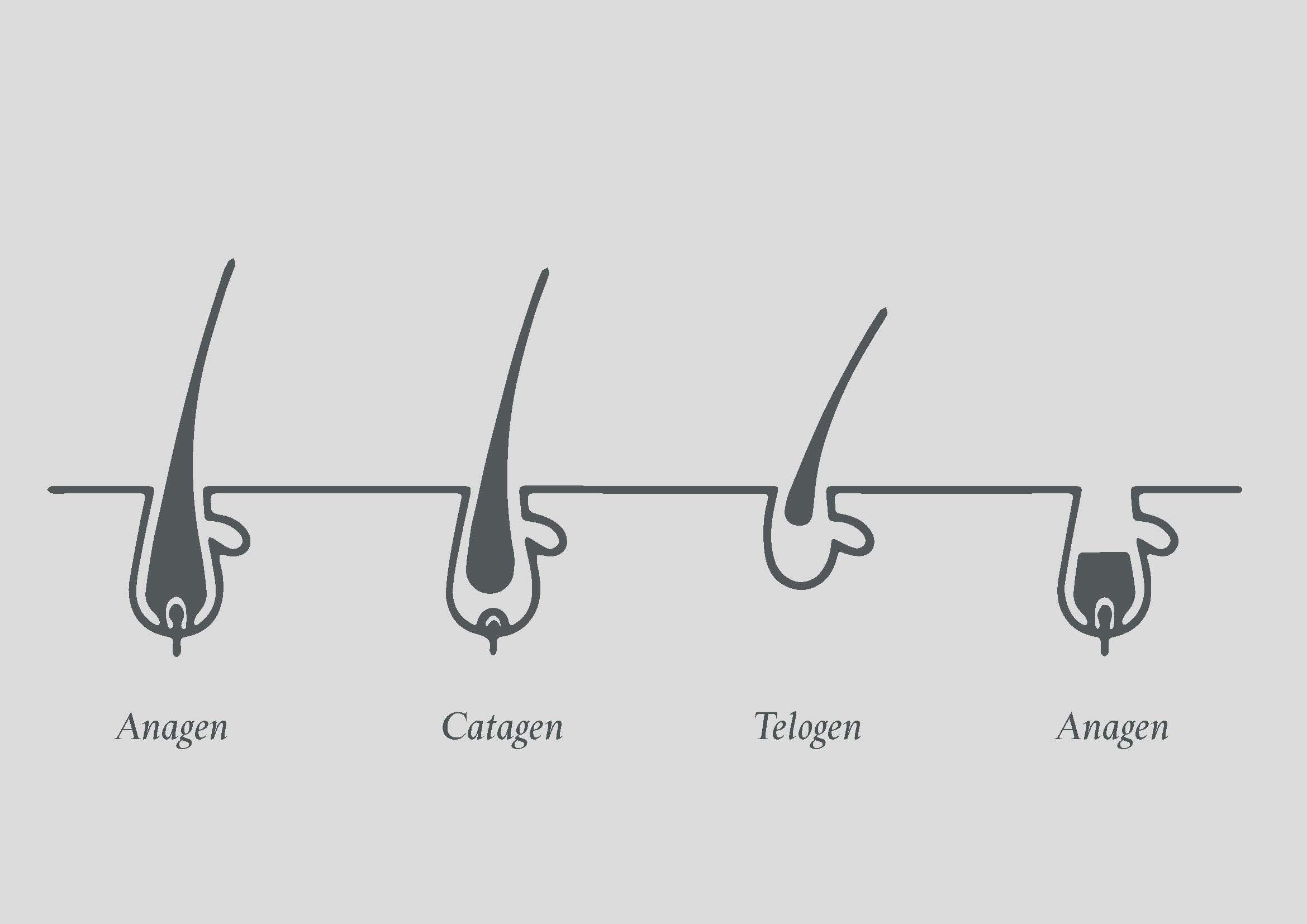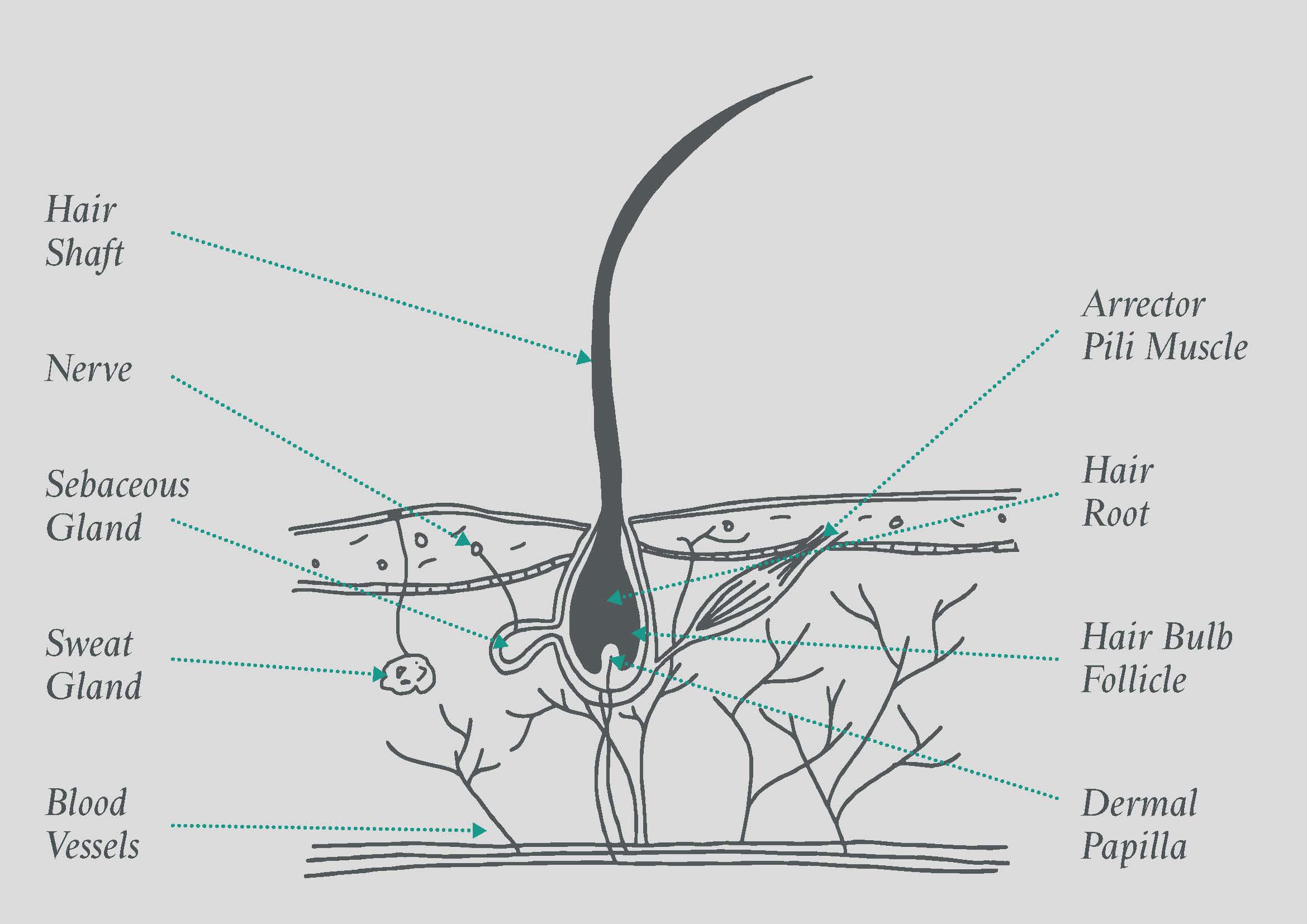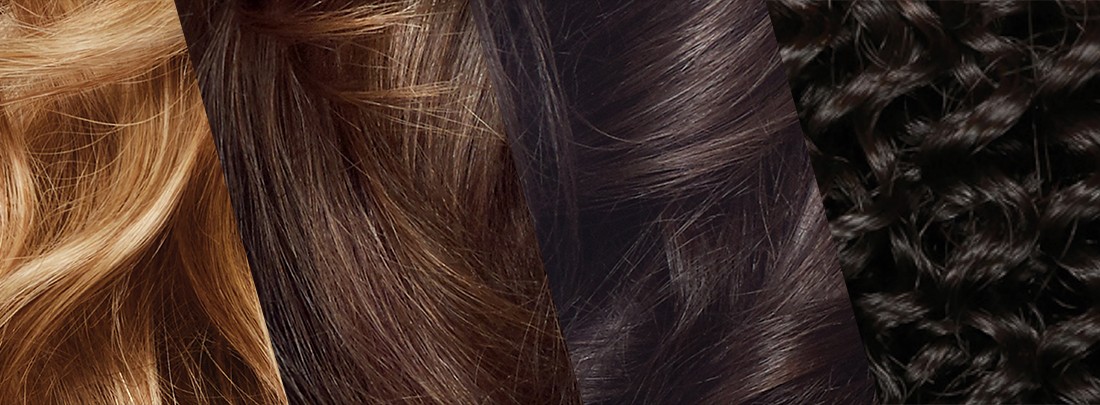The Hair Growth Cycle: 4 Key Stages Explained | Philip Kingsley

Anabel Kingsley
Brand President
The Four Stages of the Hair Growth Cycle: Anagen, Catagen, Telogen & Exogen
Agagen Phase
What is the Agagen Phase?
Also known as the ‘Growth Phase’ or ‘Active Phase’, the Anagen Phase is when the cells in the root of your hair are most rapidly dividing so more new hair is formed.
How much does your hair grow?
During the Anagen Phase, your hair grows around half an inch a month [about 6 inches a year], and faster in the summer than in winter.
How long does the Agagen Stage last?
This phase of the Hair Growth Cycle lasts an average of 3-5 years — so a full-length hair growth averaging 18 to 30 inches. The Anagen Phase is generally longer in people of Asian descent, and can last as much as 7 years — meaning your hair may be able to grow up to 3 feet long!

Catagen Phase
What is the Catagen Phase?
Following the Anagen Phase, your hair cycle enters a short transitional phase known as the Catagen Phase, which signals the end of active hair growth and cuts individual hairs off from the blood supply and from the cells that produce new hair. Approximately 3% of all hairs are in this stage at any time.
How long does the Catagen Stage last?
Approximately 10 days.
Telogen Phase
What is the Telogen Phase?
The third stage of your natural hair growth cycle is the Telogen Phase, a resting period when strands remain in their follicles but are not actively growing. An estimate of 10-15% of your hairs are in the Telogen Phase at any given moment.
How long does the Telogen Stage last?
Approximately 3 months or 100 days.
Exogen Phase
What is the Exogen Phase?
The final stage of the Hair Growth Cycle, when individual hair strands are released from their follicles and fall out. Now the whole process can begin again!
How long does the Exogen Stage last?
2 - 5 months.
What Happens when the Hair Growth Cycle is Disrupted?
Each hair follicle is independent and goes through the growth cycle at different times — otherwise all your hair would fall out at once! Instead, you only shed a certain number of hairs a day – 80 to 100 hairs on a healthy head of hair.
Hair loss, hair thinning and problems with hair growth may occur when your growth cycle is disrupted. This can be triggered by conditions such as metabolic imbalances, illness or improper nutrition.
For instance, around 12 weeks after restrictive dieting or a high fever, you may experience telogen effluvium (sudden diffuse hair fall). This occurs when your anagen (growth) phase is cut short, and many hairs enter the telogen (resting) phase at the same time – resulting in increased hair fall 3 months later during the exogen (shedding) phase.

If your hair growth cycle is constantly disrupted (for example, not supported with good nutrition, you may find that your hair will not grow as long as it used to. This is because your hairs are never allowed to stay in the anagen phase long enough to reach the desired length.
If you are worried about any hair or scalp issue, our Clinics in London and New York specialise in all aspects of hair and scalp health, and will be pleased to welcome you.
Diet & nutrition
Having a consistent diet that includes a healthy balance of vitamins, iron, fibre and protein will help regulate your Hair Growth Cycle. You can also incorporate nutritional supplements into your daily routine to add in an extra layer of control.
Minimise stress
Stress can increase the amount of time your hair spends in the ‘resting’ phases of the cycle where new hair isn’t growing. The more you can adopt techniques to minimise and deal with stress, the more your hair will benefit. Read more about stress and its impact on your hair here.
Choose the right hair care products
Products that specifically speak to the needs and demands of your own hair, whether you struggle with hair thinning or limp hair, will help your hairs to make the most of whichever stage they’re in.
Products that specifically speak to the needs and demands of your own hair, whether you struggle with hair thinning or limp hair, will help your hairs to make the most of whichever stage they’re in
You may also be interested in:



